Home

In Vitro Fertilization (IVF)

Ovarian Stimulation: Understanding the Process and What to Expect
In this Article
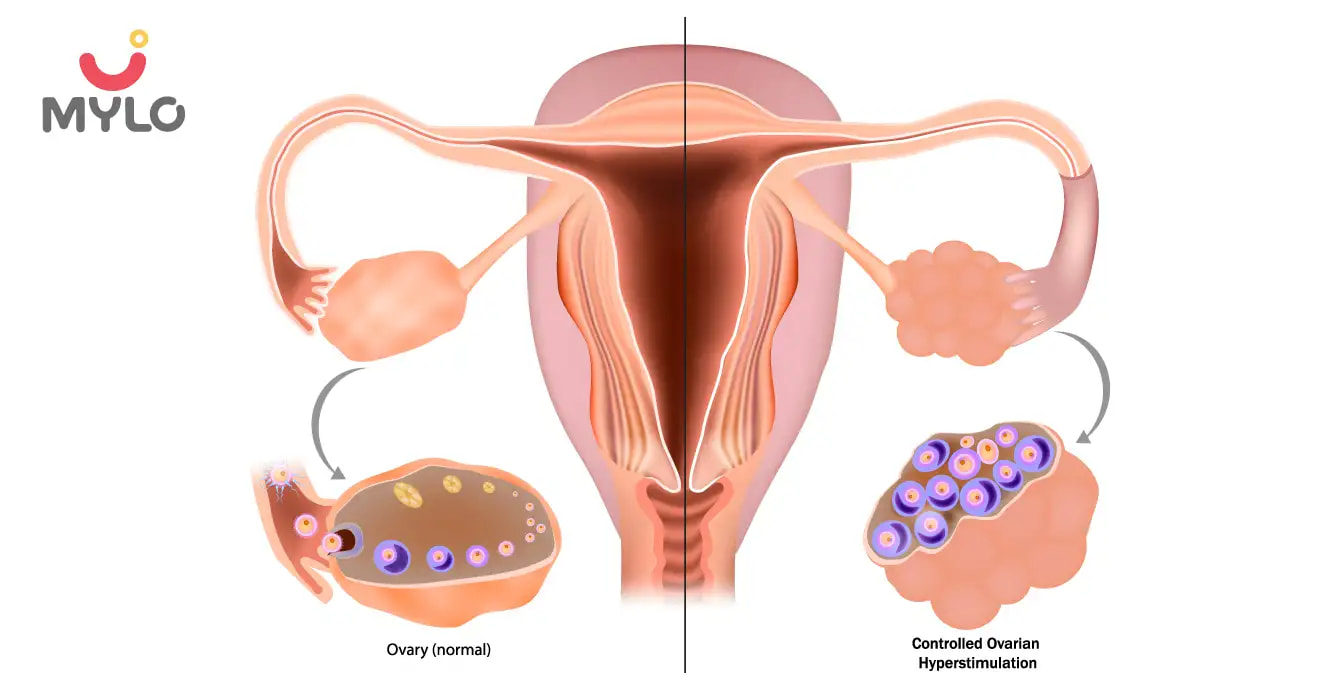
In Vitro Fertilization (IVF)
Ovarian Stimulation: Understanding the Process and What to Expect
Updated on 20 July 2023
Maanvi: (excitedly) Hey Naina, we've decided to start the process of IVF, and today, the doctor explained that the first step is ovarian stimulation in which they give me medications to stimulate my ovaries to produce multiple eggs instead of just one during a regular menstrual cycle.
Naina: (intrigued) Oh, so more eggs mean more chances, right?
Maanvi: Exactly!
Naina: (concerned) But won't it be uncomfortable?
Maanvi: (smiling) The doctor said there might be some mild discomfort, like bloating and cramping, but they'll monitor everything closely to ensure it's safe and effective.
Naina: (supportive) That's good to hear. I'm here for you every step of the way!
And Maanvi embarked on a journey filled with hope, determination, and the promise of new beginnings. Let’s learn more about it.
What is Ovarian Stimulation in IVF?
Ovarian stimulation, also known as controlled ovarian hyperstimulation, is a crucial step in the IVF (in vitro fertilization) process. It involves the administration of hormonal medications to the woman to stimulate her ovaries to produce multiple mature eggs. Typically, the natural menstrual cycle is suppressed using medications, followed by the administration of follicle-stimulating hormone (FSH) injections to promote the growth and development of multiple ovarian follicles.
This controlled stimulation aims to maximize the number of eggs available for retrieval during the IVF procedure, increasing the chances of successful fertilization and embryo development. Regular monitoring through ultrasounds and hormone level assessments is performed to adjust medication dosages and ensure appropriate follicular growth.
When is Ovarian Stimulation Necessary?
Ovarian stimulation IVF is necessary when there is a need to increase the number of mature eggs available for retrieval. It is typically recommended in the following situations:
1. Diminished Ovarian Reserve
Women with a diminished ovarian reserve, may require ovarian stimulation to increase the chances of obtaining an adequate number of viable eggs for fertilization.
2. Unsuccessful Natural or Mild Stimulation
If previous attempts at natural conception or mild ovarian stimulation have been unsuccessful.
3. Age-Related Factors
As women age, the quantity and quality of their eggs diminish. Ovarian stimulation is often recommended for women of advanced maternal age (typically over 35)
4. Infertility Causes
Certain fertility issues, such as ovulation disorders or hormonal imbalances, may require ovarian stimulation to induce follicular growth and ensure the release of mature eggs for fertilization.
You may also like : IVF Process Step by Step Timeline: What to Expect During Your Fertility Journey
What is the Process of IVF Stimulation?
The process of IVF stimulation, also known as ovarian stimulation, involves several steps to stimulate the ovaries and promote the development of multiple mature eggs. Here is a general outline of the process:
1. Baseline Assessment:
Before starting the stimulation process, a baseline evaluation is conducted to assess the woman's ovarian reserve and overall reproductive health. This may involve blood tests and ultrasound examinations.
2. Suppression of Natural Cycle:
In some IVF protocols, the natural menstrual cycle is suppressed using medications such as oral contraceptives or GnRH analogues. This helps to control the timing and synchronization of follicular growth.
3. Stimulation Medications:
Stimulation medications, typically injectable follicle-stimulating hormones (FSH), are administered to encourage the ovaries to produce multiple follicles. These medications are usually self-administered by the woman on a daily basis for around 8-14 days.
4. Monitoring:
Throughout the stimulation process, the woman undergoes regular monitoring through blood tests and ultrasound examinations. These tests assess the response of the ovaries to the medications, measure follicular growth, and determine the appropriate timing for egg retrieval.
5. Trigger Injection:
When the follicles reach an optimal size, a trigger injection of human chorionic gonadotropin (hCG) or a GnRH agonist is administered. This final injection helps to induce the final maturation of the eggs.
You may also like : Understanding Follicular Study A Comprehensive Guide to Female Fertility
Do’s and Don'ts During IVF Stimulation
During IVF stimulation, it's important to follow certain guidelines to optimize the chances of success. Here are some general do's and don'ts to keep in mind:
Do's
-
Adhere to medication schedule
-
Attend monitoring appointments
-
Maintain a healthy lifestyle
-
Stay hydrated
-
Communicate with your healthcare provider
Don'ts
-
Self-medication
-
Stress and anxiety
-
Strenuous activities
-
Smoking, alcohol, and substance use
-
Skipping medications or appointments
What to Expect After Ovarian Stimulation in IVF?
After undergoing ovarian stimulation in IVF, there are several things you can expect during the subsequent stages of the treatment cycle. Here are some common experiences:
1. Monitoring:
Following ovarian stimulation, you can anticipate regular monitoring appointments, including blood tests and ultrasound examinations.
2. Egg Retrieval:
Once the follicles reach the desired size, you will undergo an egg retrieval procedure. This is a minor surgical procedure performed under sedation or anesthesia. The eggs are retrieved using a needle guided by ultrasound, and the procedure typically takes about 20-30 minutes. Afterward, you may experience some mild discomfort or bloating, which should subside within a few days.
3. Fertilization and Embryo Development:
After the eggs are retrieved, they are combined with sperm in the laboratory for fertilization. Depending on the specific circumstances and the clinic's protocols, fertilization may occur through conventional IVF or intracytoplasmic sperm injection (ICSI).
4. Embryo Transfer:
Once the embryos have developed, the healthcare team will determine the appropriate time for embryo transfer. This involves placing one or more embryos into the uterus using a thin catheter. The procedure is typically quick and minimally invasive, with no need for anesthesia.
5. Waiting Period:
After the embryo transfer, a waiting period ensues before you can undergo a pregnancy test. This period can be emotionally challenging, as you anticipate the outcome of the IVF cycle. It's essential to maintain a positive mindset, manage stress, and seek support from your healthcare team, loved ones, or support groups during this time.
6. Pregnancy Test:
Approximately 10-14 days after the embryo transfer, you will undergo a blood test to determine if the IVF cycle has resulted in a pregnancy.
FAQs
1. How Many Days is Ovarian Stimulation?
Ovarian stimulation typically lasts around 8 to 14 days, depending on the specific IVF protocol and individual response to the medications. During this period, the woman self-administers daily injections of follicle-stimulating hormone (FSH) or other medications to promote the growth and development of multiple ovarian follicles.
2. Is Ovarian Stimulation Painful?
Ovarian stimulation in IVF can cause some discomfort for individuals, but the level of pain varies from person to person. The injections may cause mild discomfort or a stinging sensation at the injection site. Some women may experience bloating or pelvic discomfort as the ovaries respond to the stimulation medications.
3. Does Stimulation Affect Egg Quality?
Ovarian stimulation is carefully designed to maximize the number of eggs produced; however, it is generally believed that stimulation does not significantly impact egg quality. The quality of eggs primarily depends on factors such as a woman's age, underlying health conditions, and overall ovarian reserve.
Final Thoughts
In conclusion, ovarian stimulation is a crucial step in the IVF process to promote the development of multiple eggs for retrieval. While the stimulation process may cause some discomfort, it is generally manageable and temporary. Ovarian stimulation is designed to increase the quantity of eggs available for fertilization, while egg quality is primarily determined by individual factors such as age and overall ovarian reserve. The process can sometimes be regarded as IVF stimulation, and it is important to follow dos and don’ts during IVF stimulation.
References
1. Beall SA, DeCherney A. (2012). History and challenges surrounding ovarian stimulation in the treatment of infertility. Fertil Steril. NCBI
2. Gallos ID, Eapen A, Price MJ, Sunkara SK, Macklon NS, Bhattacharya S, Khalaf Y, Tobias A. (2017). Controlled ovarian stimulation protocols for assisted reproduction: a network meta‐analysis. NCBI



Written by
Madhavi Gupta
Dr. Madhavi Gupta is an accomplished Ayurvedic doctor specializing in Medical content writing with an experience of over 10 years.
Read MoreGet baby's diet chart, and growth tips

Related Articles
Related Questions
Hello frnds..still no pain...doctor said head fix nhi hua hai..bt vagina me pain hai aur back pain bhi... anyone having same issues??

Kon kon c chije aisi hai jo pregnancy mei gas acidity jalan karti hain... Koi btayega plz bcz mujhe aksar khane ke baad hi samagh aata hai ki is chij se gas acidity jalan ho gyi hai. Please share your knowledge

I am 13 week pregnancy. Anyone having Storione-xt tablet. It better to have morning or night ???

Hlo to be moms....i hv a query...in my 9.5 wk i feel body joint pain like in ankle, knee, wrist, shoulder, toes....pain intensity is high...i cnt sleep....what should i do pls help....cn i cosult my doc.

Influenza and boostrix injection kisiko laga hai kya 8 month pregnancy me and q lagta hai ye plz reply me

RECENTLY PUBLISHED ARTICLES
our most recent articles
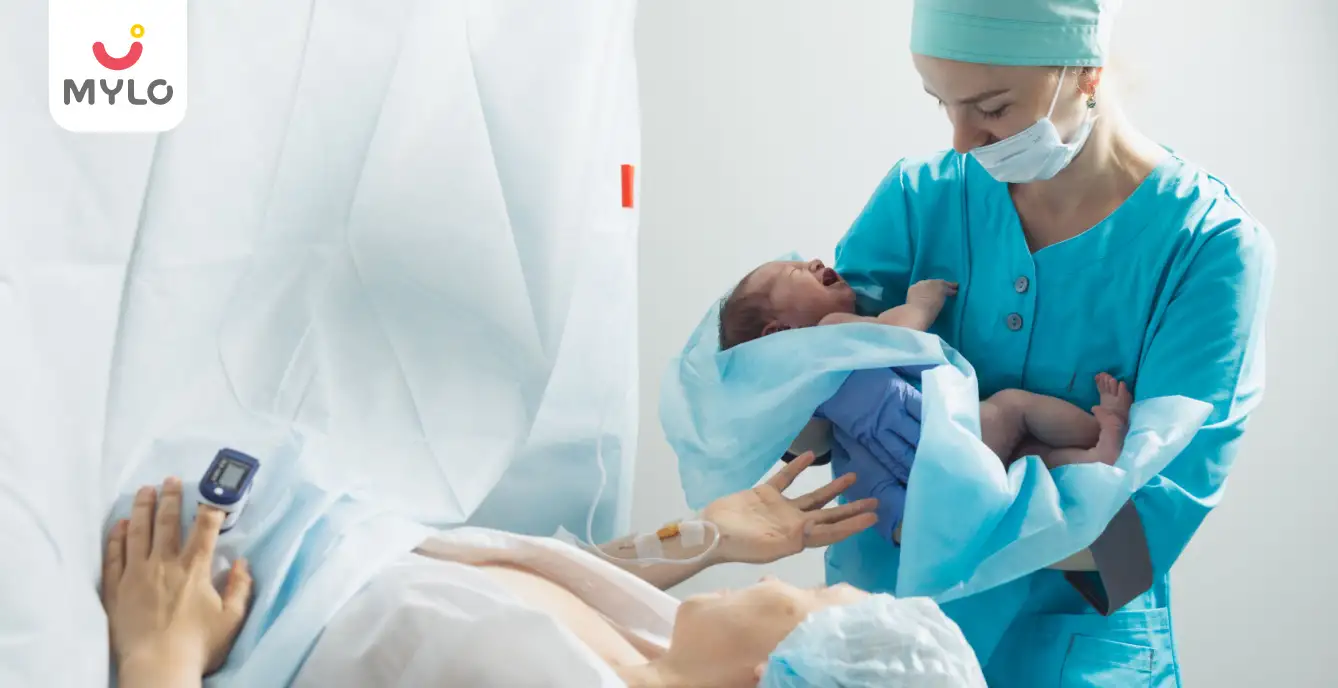
In Vitro Fertilization (IVF)
IVF Baby Delivery: Will You Have a C Section or Vaginal Delivery?
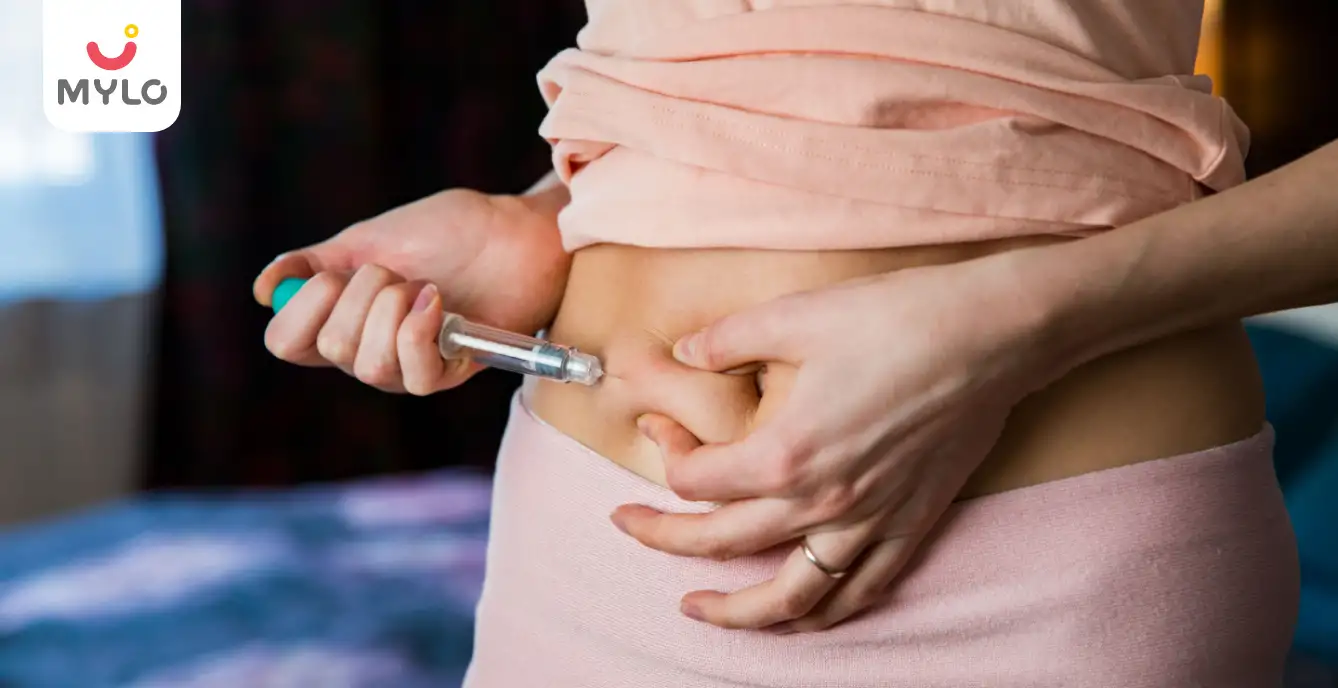
In Vitro Fertilization (IVF)
How Many Injections for IVF Treatment Do You Really Need

Conception
IUI Failure Symptoms & Reasons: Understanding Why IUI Fails & What to Do Next

Lactose Intolerance
Lactose Intolerance in Babies: A Parent’s Guide to Identifying and Managing it
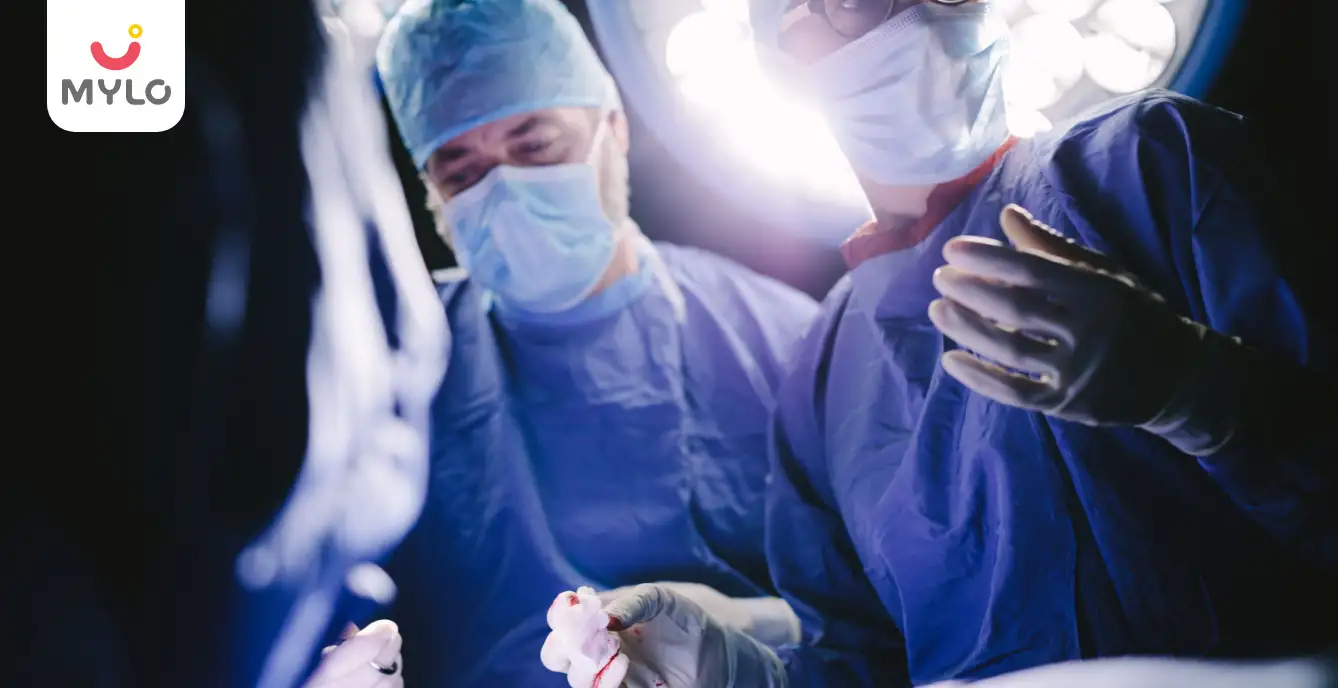
Medical Procedures
TESA IVF: How This Procedure Can Help You Achieve Your Dream of Parenthood
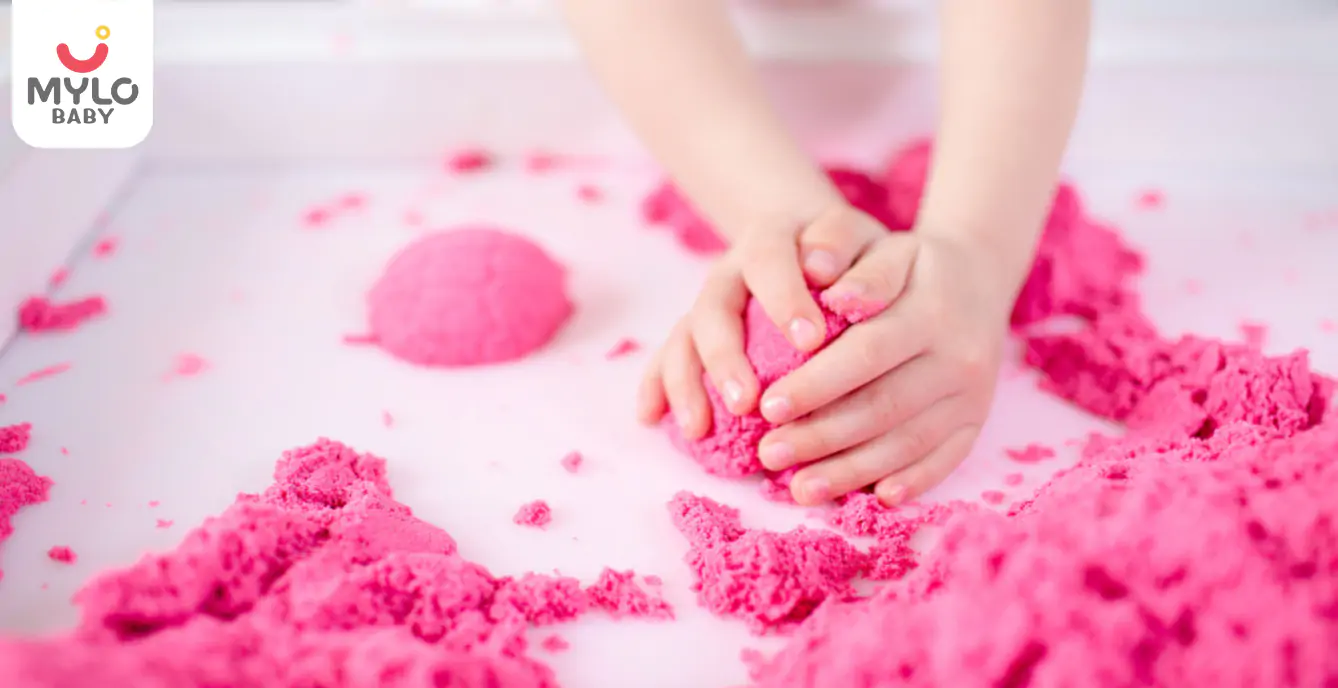
Sensory Development
How Can You Encourage Sensory Play for Your Baby and What are Its Benefits?
- After How Many Weeks IVF Pregnancy Is Safe: Understanding The Ideal Timeline
- Exploring the Senses: 9 Incredible Benefits of Sensory Play for Your Child's Development
- The Ultimate Guide to Childproofing Your Home
- Start Their Love for Reading Early: The Best Books for Baby's First Library
- CMPA (Cow's Milk Protein Allergy): Identifying Symptoms and Understanding Treatment
- Birth Control Options While Breastfeeding: Balancing Parenthood and Contraception
- Period During Breastfeeding What Every New Mother Should Know
- Role of Stories and Rhymes in Your Baby’s Brain Development
- Intracytoplasmic Sperm Injection (ICSI) How It Can Help Treat Male Infertility
- Baby Sleeping While Breastfeeding: Understanding the Causes and Solutions
- Lump in Breast During Breastfeeding How to Identify, Treat, and Prevent Lump Formation
- Understanding Down Syndrome: A Comprehensive Guide for Parents
- Lactation Failure: A Comprehensive Guide to Understanding the Causes and Solutions
- Breast Pain During Pregnancy: What to Expect and How to Find Relief


AWARDS AND RECOGNITION

Mylo wins Forbes D2C Disruptor award

Mylo wins The Economic Times Promising Brands 2022
AS SEEN IN

- Mylo Care: Effective and science-backed personal care and wellness solutions for a joyful you.
- Mylo Baby: Science-backed, gentle and effective personal care & hygiene range for your little one.
- Mylo Community: Trusted and empathetic community of 10mn+ parents and experts.
Product Categories
baby carrier | baby soap | baby wipes | stretch marks cream | baby cream | baby shampoo | baby massage oil | baby hair oil | stretch marks oil | baby body wash | baby powder | baby lotion | diaper rash cream | newborn diapers | teether | baby kajal | baby diapers | cloth diapers |




